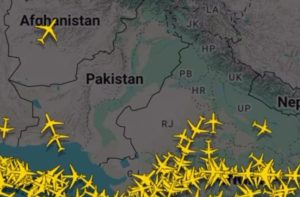ISLAMABAD – More than 350 cases have been registered under Pakistan Electronic Crimes Act (Peca) across the country and many of them appear to be illegal, recent revelations surface emerged during recent meeting of Standing Committee on Information and Broadcasting, where members expressed concern over the misuse of the law.
Standing Committee on Information and Broadcasting revealed that 372 cases registered under the Pakistan Electronic Crimes Act (Peca) in various provinces are illegal. The disclosure came during a committee meeting where members noted that following the latest amendment to the Peca Act, provincial authorities no longer have the authority to register cases under the Act.
Officials from the National Cyber Crime Investigation Agency (NCCIA) confirmed that after the Peca Act 2025 amendment, all cases registered in the provinces will be transferred to the federal agency. The committee chairman described these cases as “illegal” and questioned what actions should be taken.
A sub-committee has been formed to investigate the registration of these unlawful cases at the provincial level. Details of cases filed against journalists were also presented to the committee.
Ministry of Information officials clarified that 19 cases have been registered under Peca in Islamabad, none of which involve journalists. The NCCIA has recorded a total of 1,214 cases nationwide, including 10 against journalists.
According to the ministry, 373 cases were registered in provinces after the latest amendments, while no arrests have been made in the 19 cases registered in the capital.
PECA ACT
PECA Bill was passed by parliament, introducing sweeping controls over online content. The amendments criminalize the dissemination of “false or fake” information, with penalties including up to three years in prison and fines up to Rs20Lac.
The law’s vague definitions and broad scope have raised concerns among journalists, human rights organizations, and opposition parties, who argue that it threatens freedom of expression and could be used to suppress dissent.
With major amendments, there are new regulatory bodies, including the Social Media Protection and Regulatory Authority (SMPRA), which has the power to remove or block content within 24 hours of a complaint. Critics argue that these provisions could lead to increased censorship and government control over digital platforms.
The government defends the amendments as necessary to combat disinformation and protect national security. However, the lack of consultation with civil society groups and the broad powers granted to authorities have led to widespread criticism.














